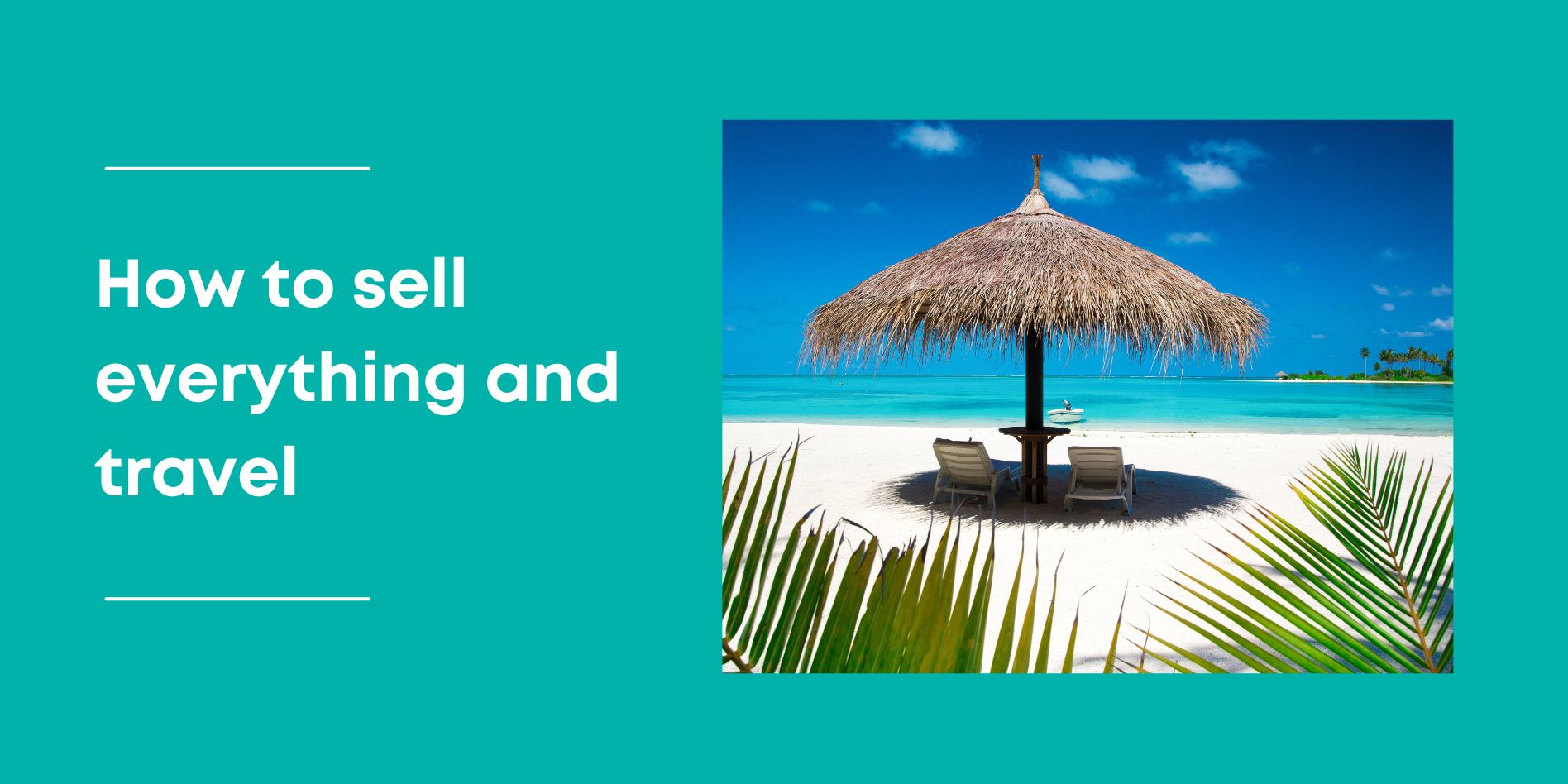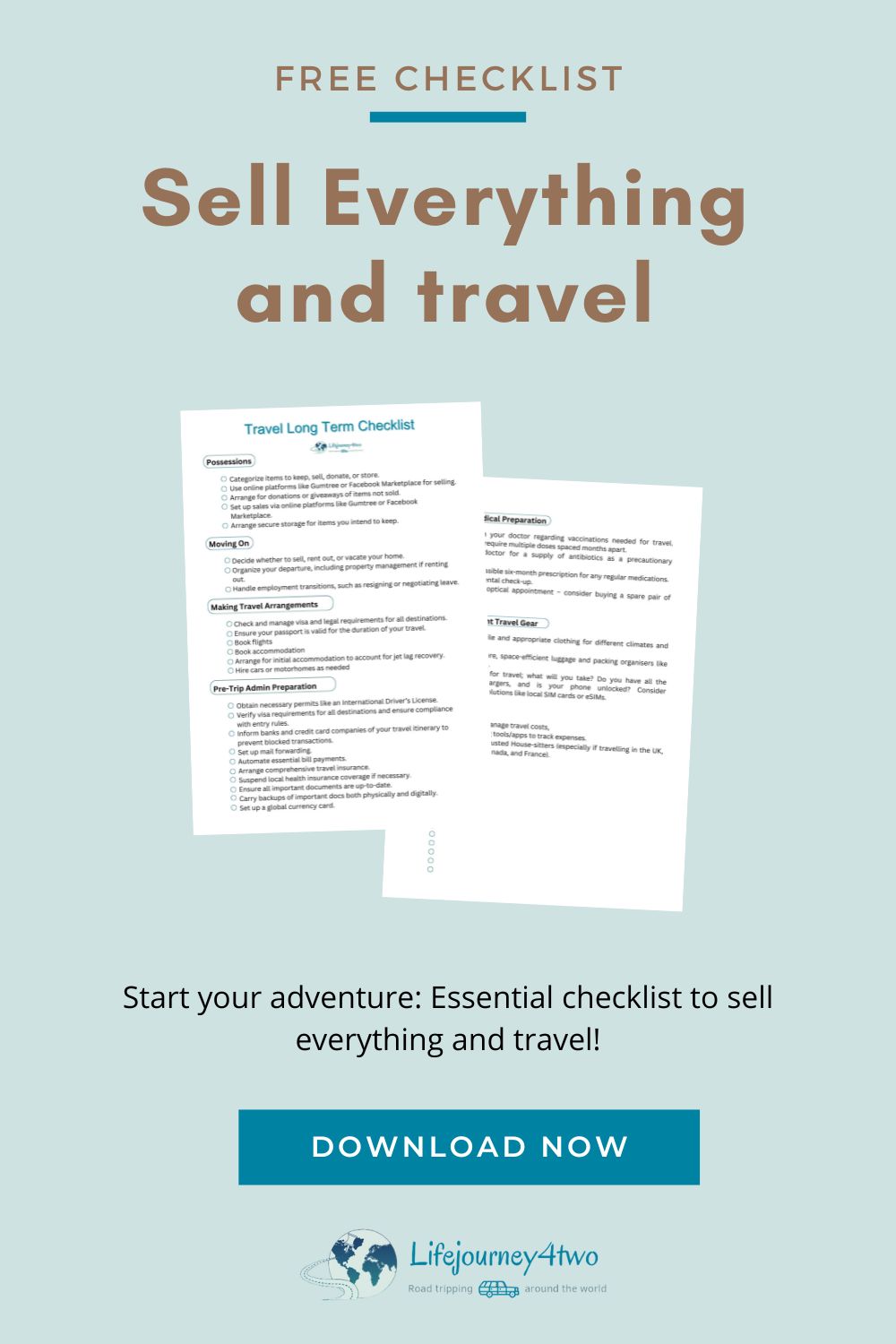We sold everything to travel in 2017 and have been travelling ever since. This wasn’t the plan – we thought we’d maybe do a year, but here we are road tripping around the world and loving every moment.
Although it’s on many a bucket list, “One day I’d love to travel,” organising something as huge as setting off on a long-term travel adventure can be daunting.
But it doesn’t have to be. Break it down into small steps, and you’ll find you’re on your way and living your dream before you know it.
Just start with the first step. Decide to do it, and make your one day day one! In our Making Our One-Days, Day One article, you can read more of our story about how we did just that.
But this post is all about helping you break down the things you need to think about, organise and do to sell everything and travel.
It’s a handy checklist for long-term travel written from our experience—what we did and wish we’d done—to ensure your trip preparation goes smoothly!
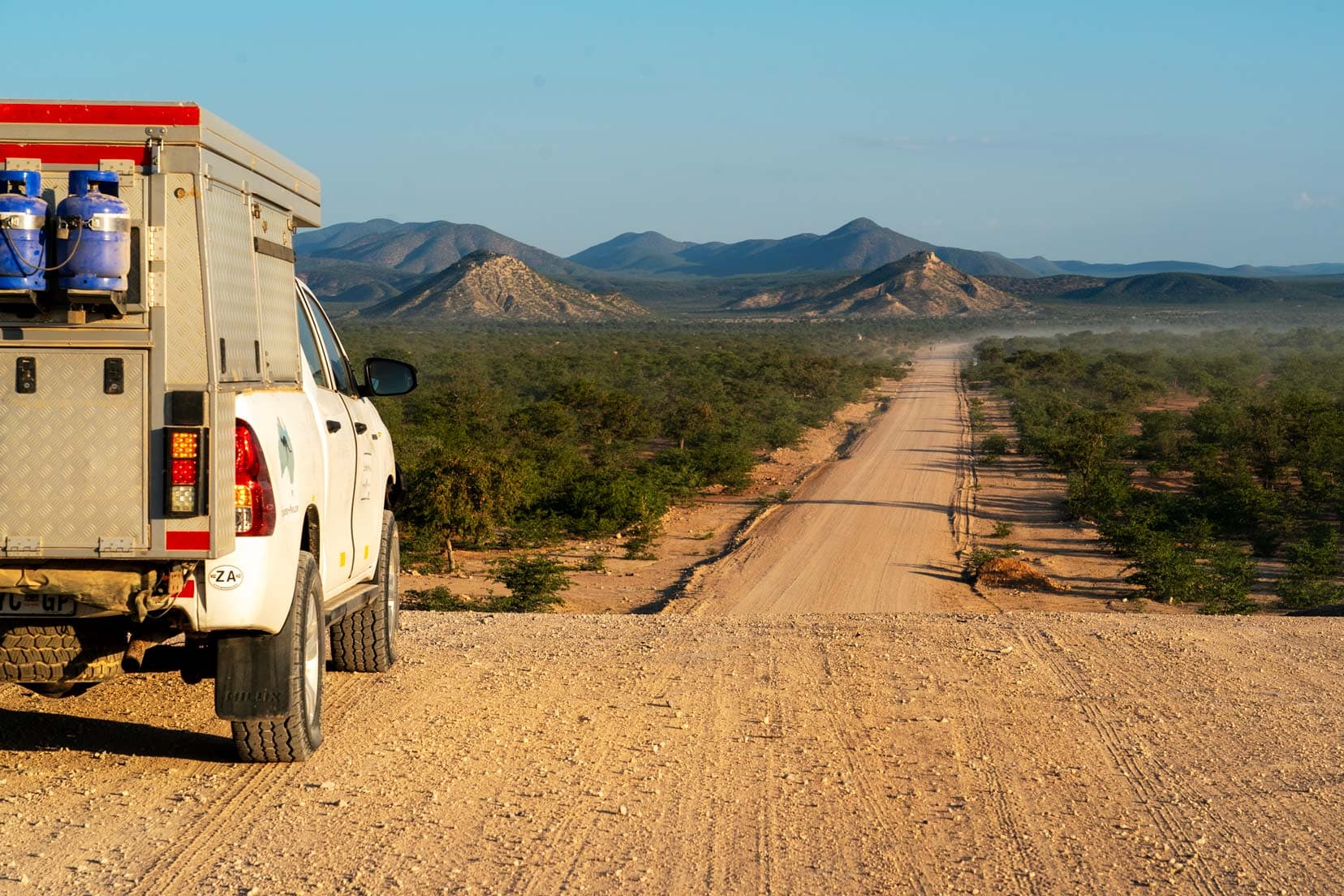
In a Nutshell: Preparing for Long-Term Travel
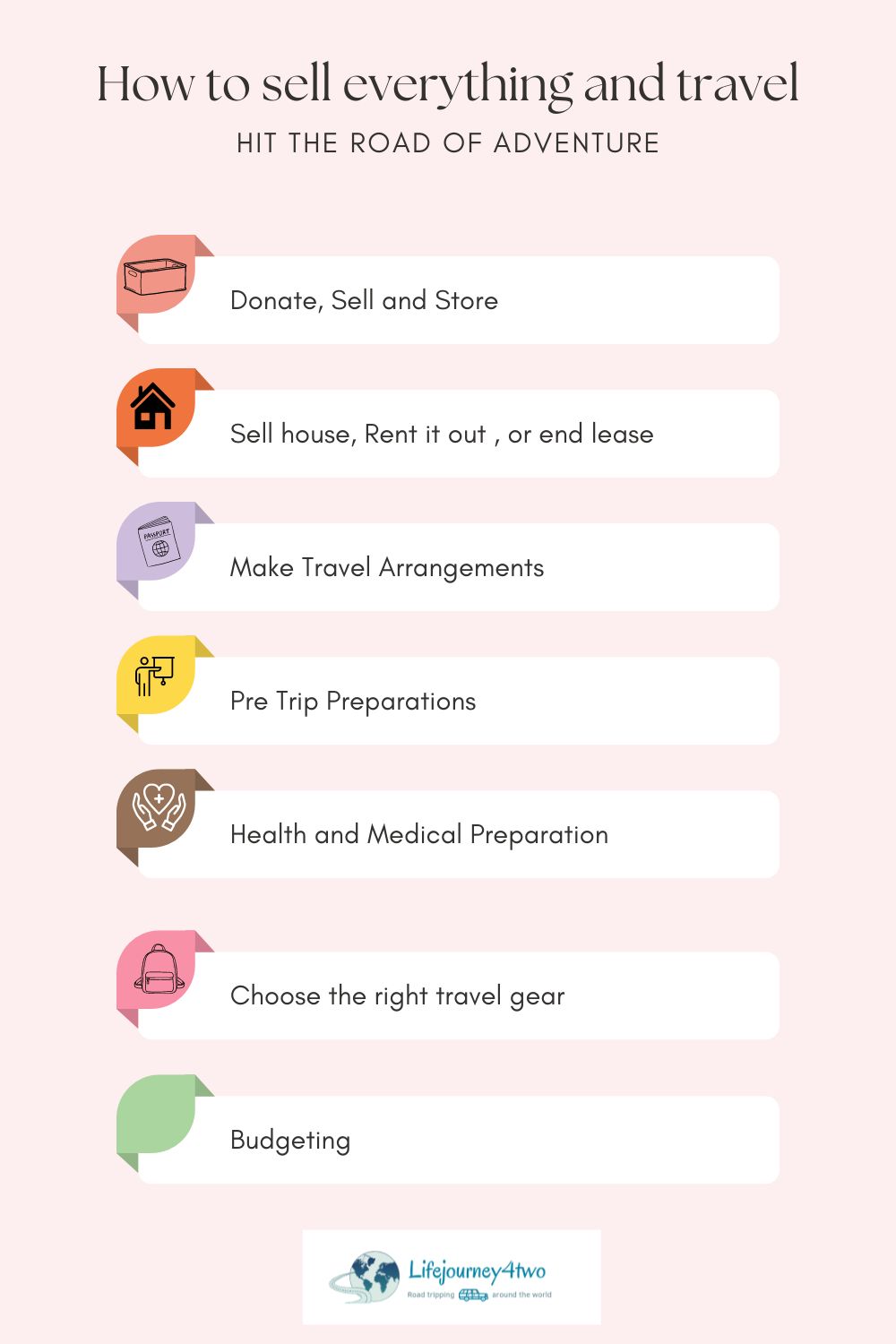
- 👜 Downsize Belongings: Sell, donate, or store. Simplifying your possessions makes packing easier and travel less cumbersome – and we found it very therapeutic!
- 🏠 Moving On: Decide whether to sell, rent out, or terminate your lease. Each option requires different preparations.
- ✈️Travel Prep: Check visa requirements, arrange travel insurance, book necessary accommodation, flights, hire cars/motorhomes, etc.
- 👩🏻⚕️Health and Medical Prep: Be current with checkups and vaccinations and organise medications.
- 🎒 Pack Smart: Invest in packing cubes and tech organizers to keep belongings compact and accessible.
- 👕 Travel Gear: Choose versatile, climate-appropriate clothing and secure, space-efficient luggage.
- 📑 Finance Prep: Travel Money cards, internet banking, budget etc.
👉 Get your FREE PRINTABLE CHECKLIST for Long Term Travel here
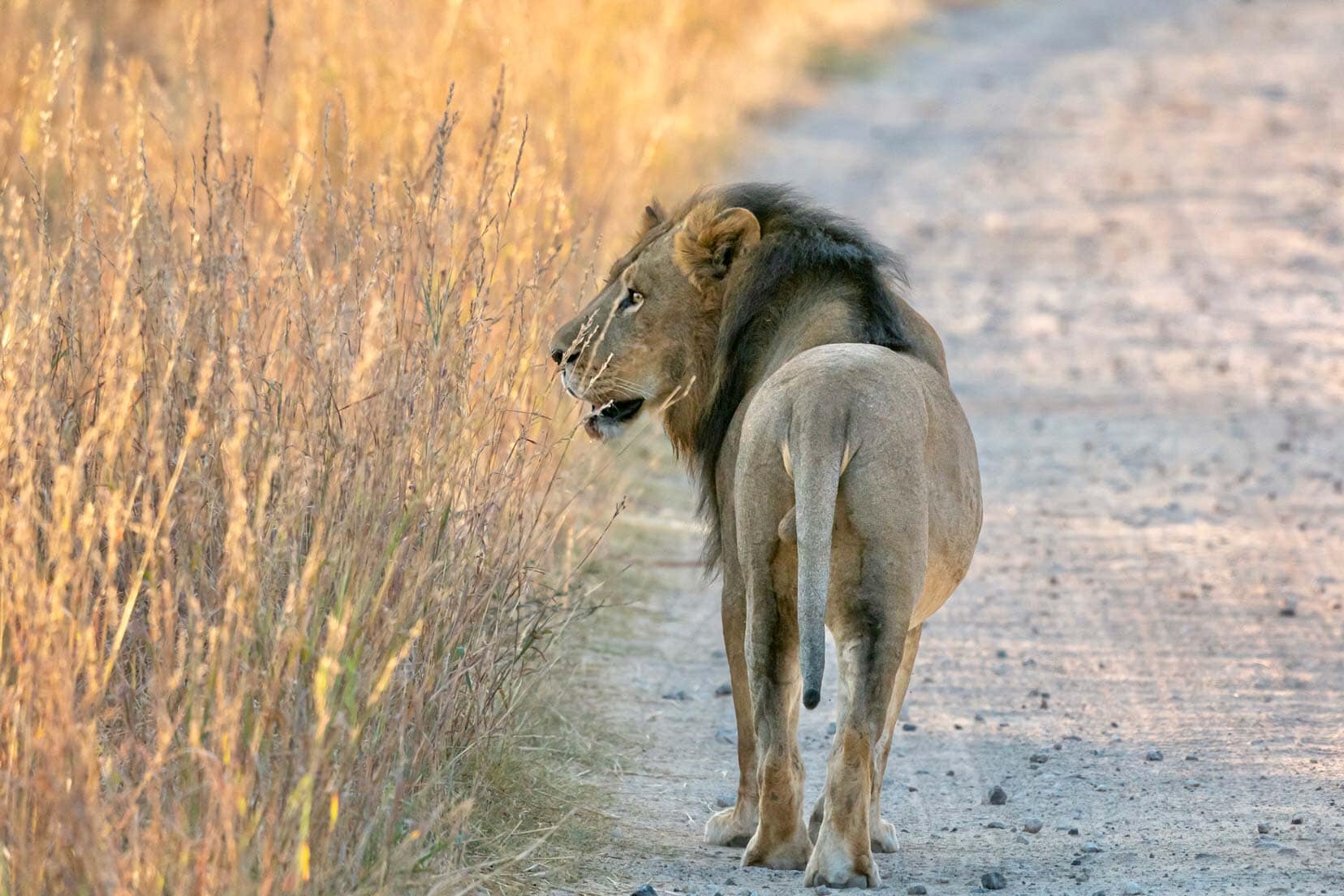
1. How to Handle Your Possessions Effectively.
Whether you are selling everything like we did or perhaps getting rid of years of clutter build-up to rent out your house, downsizing your ‘things’ is a good step toward having less to store and worry about.
Sorting and Organising
Decide what to keep, sell, donate, or store. Remember, less is more when you’re prepping for long-term travel.
At the outset, sorting through belongings, especially those with sentimental value, like the kids’ handmade cards and treasured photos, was tough. We did store a few precious mementos in a plastic box and these are stored at a friend’s.
At first, many things went into the “Not sure” pile, but after a week or so of mulling it over, it was easier to decide to let go. Over the months, this whittled down most of our stuff.
Lars found sorting his shed a challenge, though. With each attempt, more and more items were cleared, and numerous reluctant goodbyes were said to his cherished chainsaws and tools!
Selling and Donating
We sold our items on Gumtree and Facebook Marketplace. Price your items to sell, but be fair—your goal is a clutter-free departure, not last-minute panic sales.
Anything we couldn’t sell found a new home through donations or as freebies. It felt good knowing our belongings would continue to be useful to someone else, even as we moved on.
Starting this process earlier rather than later will help avoid having to bin perfectly good items.
2. Moving On
This section deals with the two main things probably holding you back right now: your home and your job.
Moving Out
Everyone will have different home scenarios regarding what they are leaving behind and how they are travelling, but the most common are:
- Moving out of your home and renting it out
- Selling your home
- Moving out of a rental
We were only renting before setting off on our adventure, but even that involved a lot of tidy-up actions, such as giving notice, vacating the property, handing in keys, and a final inspection.
If you are selling, you will probably want everything settled before you leave, so plan well in advance. If you decide to rent out your home, declutter and rent it out as furnished. Alternatively, store all your things and rent your home out as unfurnished. Organise a property agent to do the management for you.
Book alternative accommodation for at least a week before your travel dates so that you have some downtime, knowing that you are all ready to move and for last-minute arrangements. We booked an Airbnb nearby.
Have a going-away party and chill! We’ve arranged to meet all our friends at the local pub—don’t even think about entertaining at home, you have far too much to think about!
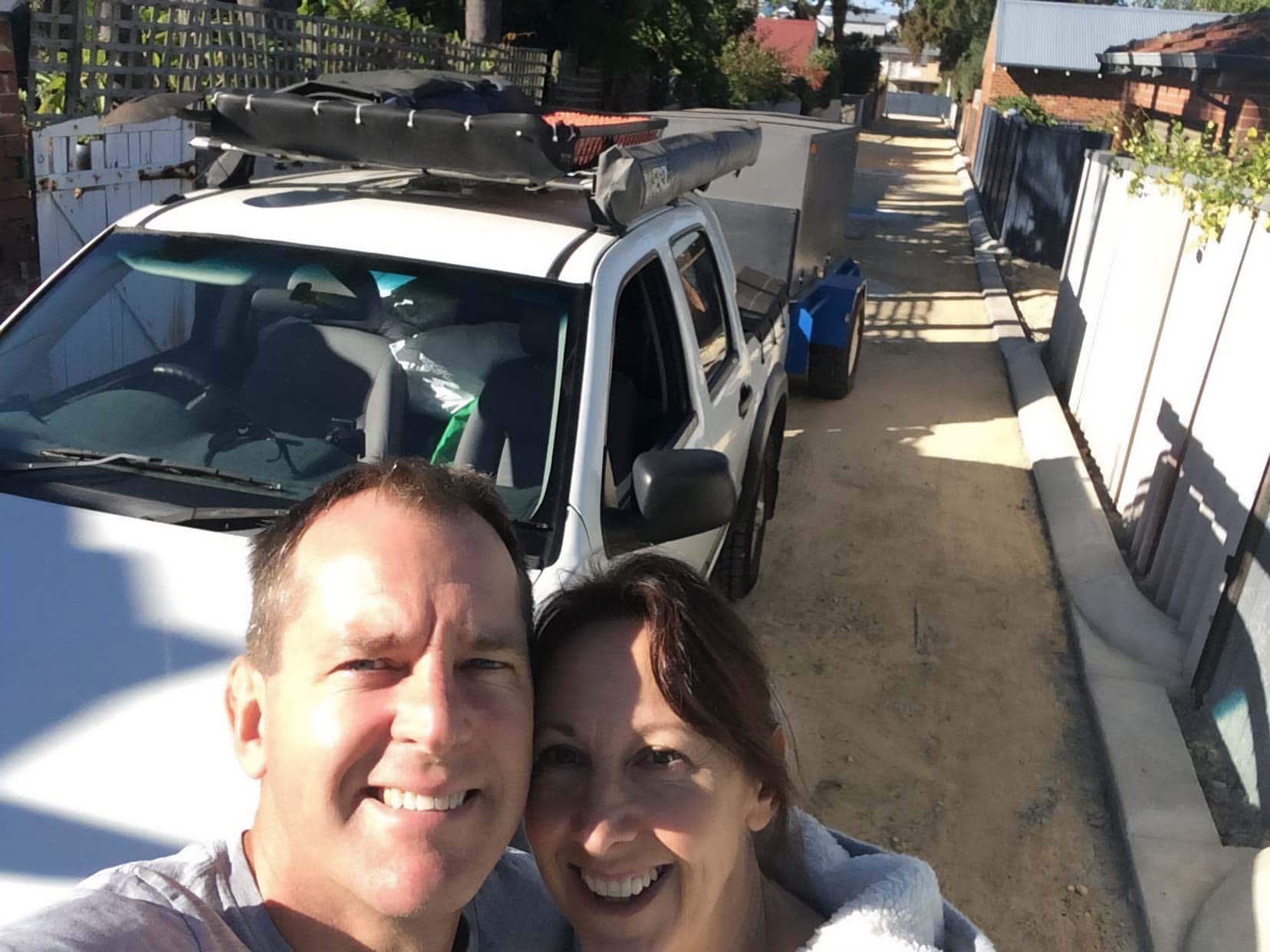
Leaving Work
You might already be retired or work remotely. If so, you don’t need to worry about this section.
We both resigned from our professional jobs to go travelling so this was a big step.
Check how much notice you need to give, then bite the bullet and go for it. I was a primary school teacher, so I gave a term’s notice to help with the school’s transition and planning as much as possible.
Lars also left his managerial position, though, on good terms. They later offered him contract work in Norway and the UK, which helped refill our travel funds!
3. Making Travel Arrangements
Depending on your plans, you may need to check visa requirements, check your passport, book flights and accommodation, and hire a motorhome or camper.
Roughly Plan Your Routes
Outline your travel route, considering key destinations and potential stops. This doesn’t have to be set in stone, but it helps to have a rough plan.
Check out our How to Plan a Road Trip for more detailed info and tips.
Visa and Legal Requirements
Always double-check visa rules for each destination, especially for complex regions like Schengen Area in Europe, which limits stays to 90 days within a 180-day period. Use tools like the Schengen Visa Calculator to stay compliant with stay limitations.
Some countries allow you to buy a visa on arrival, while others require you to have one before travelling, so check up-to-date information carefully.
Visa regulations in Africa can vary significantly. While some countries, like Botswana, pause the duration of your visa when you exit, others, like South Africa, do not. Understanding these nuances is crucial to planning your stay legally and efficiently.
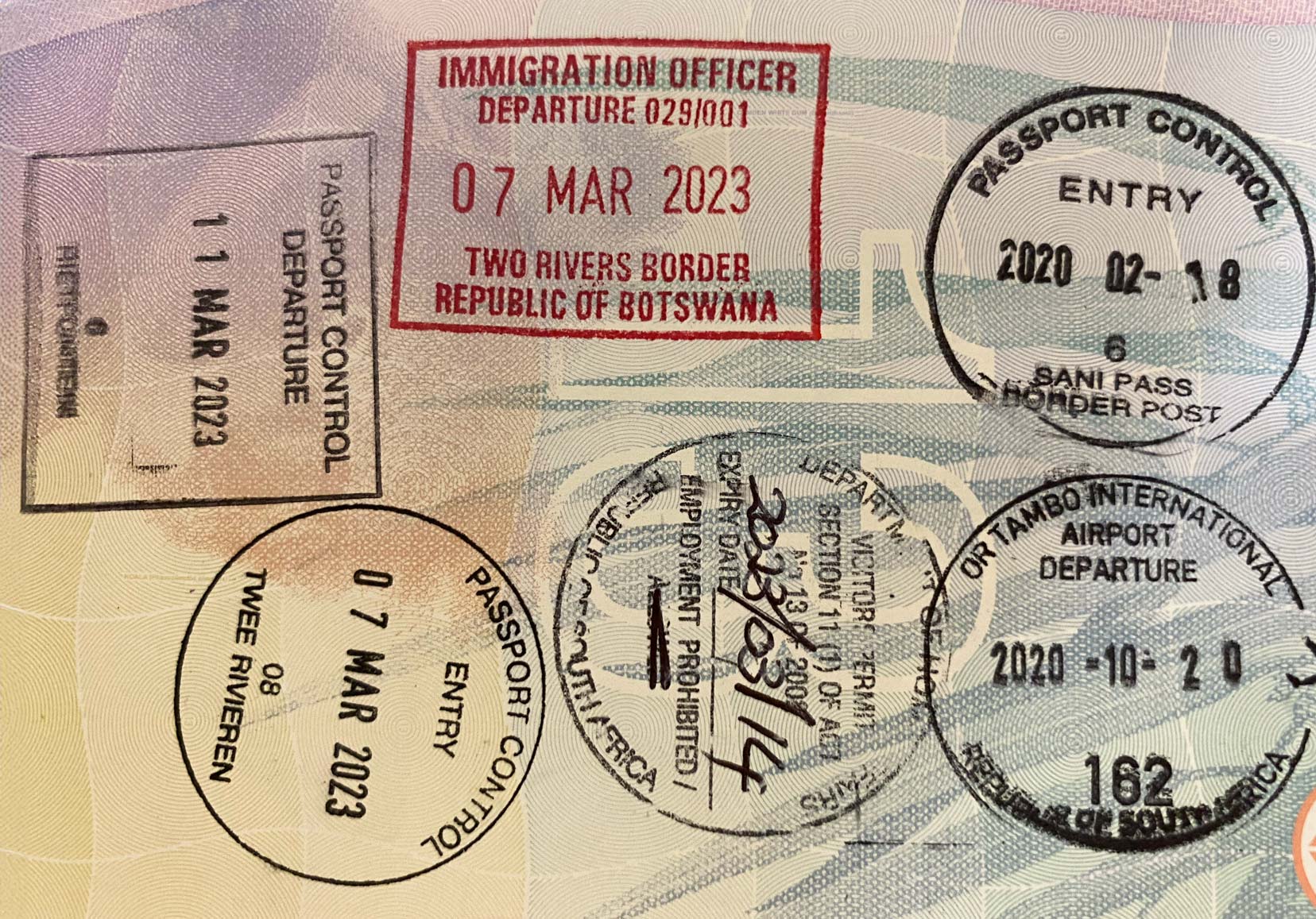
Valid Passport
This one might seem obvious, but with all the other things on your mind – it can be overlooked!
Even as a seasoned traveller, Lars checked his passport recently and saw it was about to run out. Luckily, we aren’t heading overseas until next year – but in this day and age, with renewal reminders constantly popping up in our inbox, a passport renewal notification isn’t one of them!
Make sure your passport covers the whole period of your trip with at least 6 months validity remaining for any country you plan to enter.
Booking a Flight
Generally, the earlier you book your flight, the cheaper it is, but not always. If you can be flexible with your flight, you may be able to score some last-minute deals, but when planning a big trip, you will likely want to have locked-in dates to make planning easier.
We use Skyscanner and often set up a price alert to help us decide when to book the flight.
Booking Accommodation
🌍 Travel with Flexibility
Flexibility has been a cornerstone of our travel strategy, particularly facilitated by our choice to mostly travel in a motorhome or with a rooftop tent, which allows spontaneous adjustments to our itinerary.
When travelling by car or wanting a break from camping, we use Booking.com to find accommodation. Many places offer options with free cancellation or last-minute changes, giving us peace of mind.
✈️ Allow for Jet lag
If you are flying to another country and hiring a car or camper, we suggest booking at least a night or two in accommodation to give yourself time to recoup.
You might be itching to get started, as we were when we flew from Australia to Germany to pick up our motorhome, but we really wish we’d factored in jet lag and considered the build-up of the last few month’s planning.
We were exhausted! And being new to motorhoming, setting off in a 7.5-metre motorhome, and driving on the opposite side of the road in a foreign country wasn’t fun!
We learnt from that mistake, and when we travelled to South Africa to pick up our 4×4 with rooftop tent, we booked a couple of nights in a nearby hotel, and the start of our trip was much less stressful.
🐾 Use TrustedHouseSitters
By using TrustedhouseSitters, we have saved over $100,000 on our travels. This is a fantastic budgeting option, especially if you love animals.
There are house sits around the world, but we have found the following countries where sits are easier to find regularly: the UK, Australia, the US, Canada, and France.
You can browse the variety of house sits for free here.

Hiring a Car
When hiring a car, we use Discovercars.com to find the best deal. Hire a car that will take all your luggage and enable you to explore fully.
For example, friends recently arrived from the US to explore Western Australia for a few months. Unfortunately, they didn’t hire a 4×4, which restricted some of the sights they could access without the expense of a guided tour.
If we are living in a country for an extended time, we have bought a car instead. We did that in the UK and then travelled through some of Europe and Norway. We then sold it. Therefore, we managed to save heaps by not paying rental charges.
🚘 We recommend DiscoverCars.
- They have a Price Match Guarantee.
- 4.5 Rating on Trustpilot
- Free Cancellation
Hiring a Motorhome
Saying that, though, we chose to hire for 12 months when we explored Europe in a motorhome. Several reasons swung our decision; you can read more in that article. Still, we wanted a good quality, reliable motorhome, and my past buying experience hadn’t gone so well.
Motorhome Republic was the company that made this whole process a breeze. The guy we dealt with went over and above to find the best deal, and we cannot recommend them highly enough.
🚐 Campers and motorhomes can get booked out early ⭐️ Grab a Quote from Motorhome Republic TODAY – Don’t miss out!
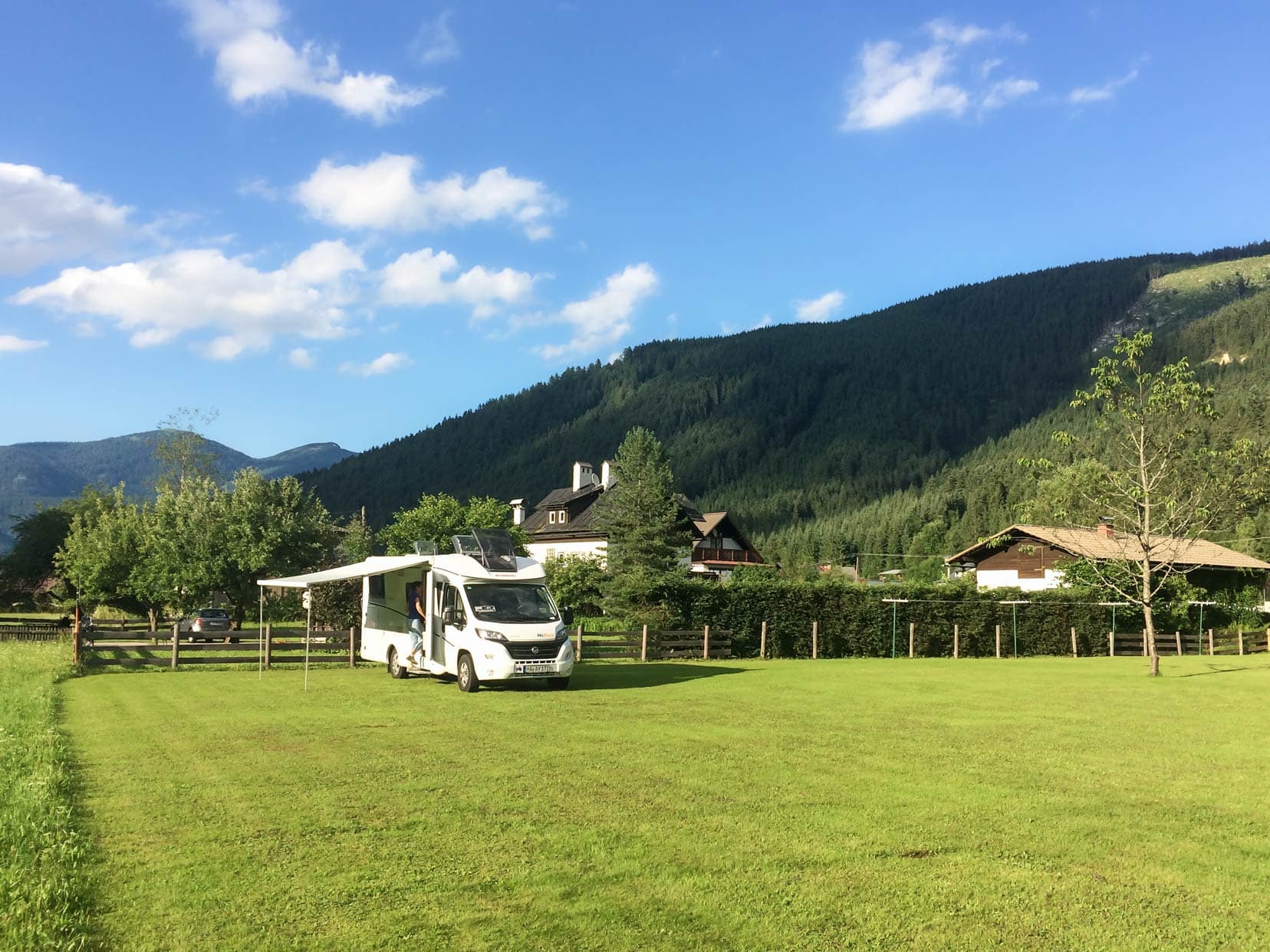
4. Pre-Trip Admin Preparation
International Driver’s Licence
Despite not always being required, having an International Driver’s Licence has proven useful, especially in Africa, where local authorities frequently request to see it.
It’s an easy document to obtain online and can save you from unnecessary complications. Save time by ordering your International driver’s licence online.
Also, ensure your standard driver’s licence remains valid when you are away.
▶︎ Do you need an International Drivers Licence? Apply Easily online here.
Post Arrangements
We arranged for our post to go to a friend, who sends us a copy via email or messaging.
Forwarding options are available at most post offices, but they can be tricky if you don’t have an overseas forwarding address. They also come with a hefty fee, so finding a friend seems to be the best option.
Bill Automation
Ensure all your financial obligations are handled smoothly by setting up automatic payments for essential bills like utilities, loans, and credit cards.
Make sure you have internet banking set up. Regularly checking our bank accounts online helped us manage our finances and avoid surprises.
Bank Dealings
Always inform your banks and credit card companies of your entire travel itinerary as far as you know.
We once faced blocked transactions because we had tried to use our cards in a country not on our extensive list of maybes! Now, we list all potential countries we might visit, which has prevented further headaches.
We also arrange for credit cards with the longest expiry dates and have a transaction token from the bank instead of relying on SMS, which can be unreliable with SIM and mobile number changes while you are abroad.
Travel Insurance
Our travel insurance has been invaluable, covering things like rental vehicle insurance excess, unexpected medical issues, our bikes being stolen in Rotterdam and all our clothes being stolen in Namibia.
💡 Travel Insurance Tip: Arrange travel insurance as soon as you know your travel dates. This ensures you are covered for unforeseen events that might delay your trip. Payment still starts from the date you depart, but that happens in the interim to delay or prevent your plans from still being covered.
On our earlier trips, we used SafetyWing because they use a month-by-month payment system, which is handy if you are unsure of your travel time.
However, we then switched from SafetyWing to World Nomads for better rates for our ages. We are pleased with them as they were extremely helpful when we made a claim.
Make sure to compare a few quotes and understand what each policy covers. A popular travel insurance comparison tool is Compare The Market.
We’d recommend getting a quote from all these to see what best fits your circumstances.
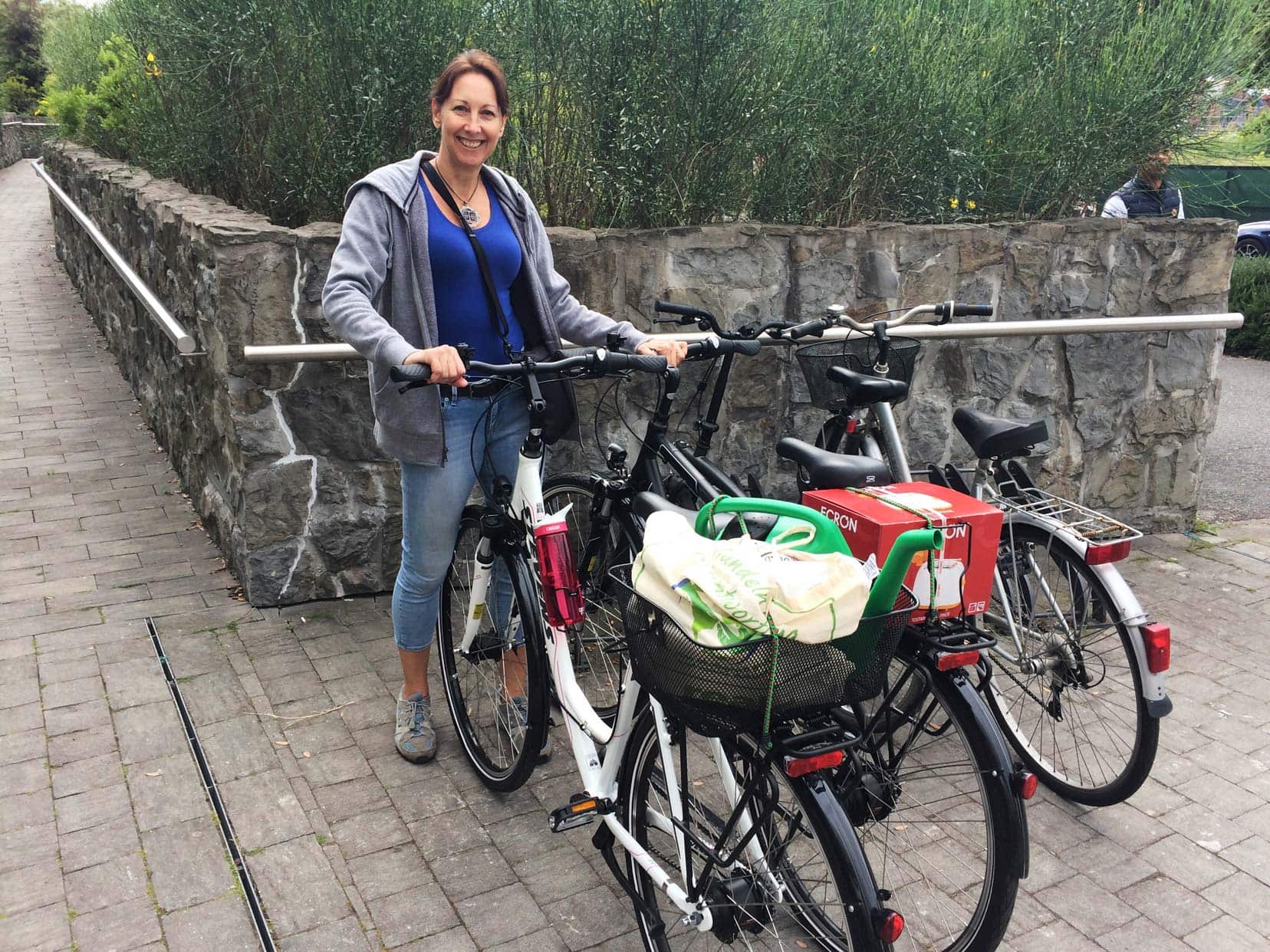
Health insurance
Consider suspending your health insurance if you will not use it abroad, or check if it can be adjusted for international coverage. We suspended ours for two years, but that was the limit available with our health insurance company.
SafetyWing recently expanded its products to include international health insurance, so it might be worth considering that option.
Global Currency Card
We use a global currency card to handle multiple currencies efficiently. This minimizes transaction fees and provides better exchange rates, simplifying financial management abroad. We’ve tried a few, but WISE seems to suit us best.
You can load various currencies, so you don’t get charged conversion fees when using it as a debit card in stores or at an ATM.
Documentation
We scanned all of our important documents and printed backup copies, which we had notorised by a justice of the peace. We had the copies with us and left the originals with a friend.
However, now we have the originals with us because we needed them on several occasions, such as when we stayed longer than three months in Norway and I needed to apply for temporary residency.
It was a hassle getting them to us. Now, if anything happens to the originals while we are travelling at least we have copies.
5. Health and Medical Preparation
Before you leave, make sure that any medical check-ups are up to date and that you have enough medication to last the trip, or at least enough until you can sort out something in the country you are travelling to.
Here are some reminders of what to do:
- Vaccinations: Check with your doctor regarding vaccinations needed for travel. Some may require multiple doses spaced months apart, so do this early.
- Antibiotics: Ask your doctor for a supply of antibiotics as a precautionary measure.
- Medications: Obtain a possible six-month prescription for any regular medications.
- Dental Check: Have a dental checkup
- Optician: Arrange an eye appointment. You might want to order an extra pair of glasses in case something happens to a pair while travelling.
6. Choosing the Right Travel Gear
Luggage Choices
🧳 Hold Luggage
Choose flexible, space-efficient bags with wheels and invest in packing cubes for organization. On our first trip, we had hard suitcases, which were impractical to store. We now have canvas bags that squash down.
Tackling luggage restrictions, especially in Europe, means getting creative. Soft case bags, in duffle Bag style, with pop-out handles and wheels, have saved us numerous headaches—they pack down but are still easy to haul around.
🔲 Packing Cubes
Packing cubes? Non-negotiable for staying sane on the move. This is one of our must-have items. Being able to keep my minimal wardrobe organised makes travelling so much easier. When we are camping, this is even more important and stops the mess of rummaging through clothing.
We have the Bagail brand packing cubes, which have lasted seven years so far, so I can highly recommend them. I recently bought some from Kmart, but one zip has already gone, and the quality isn’t there.
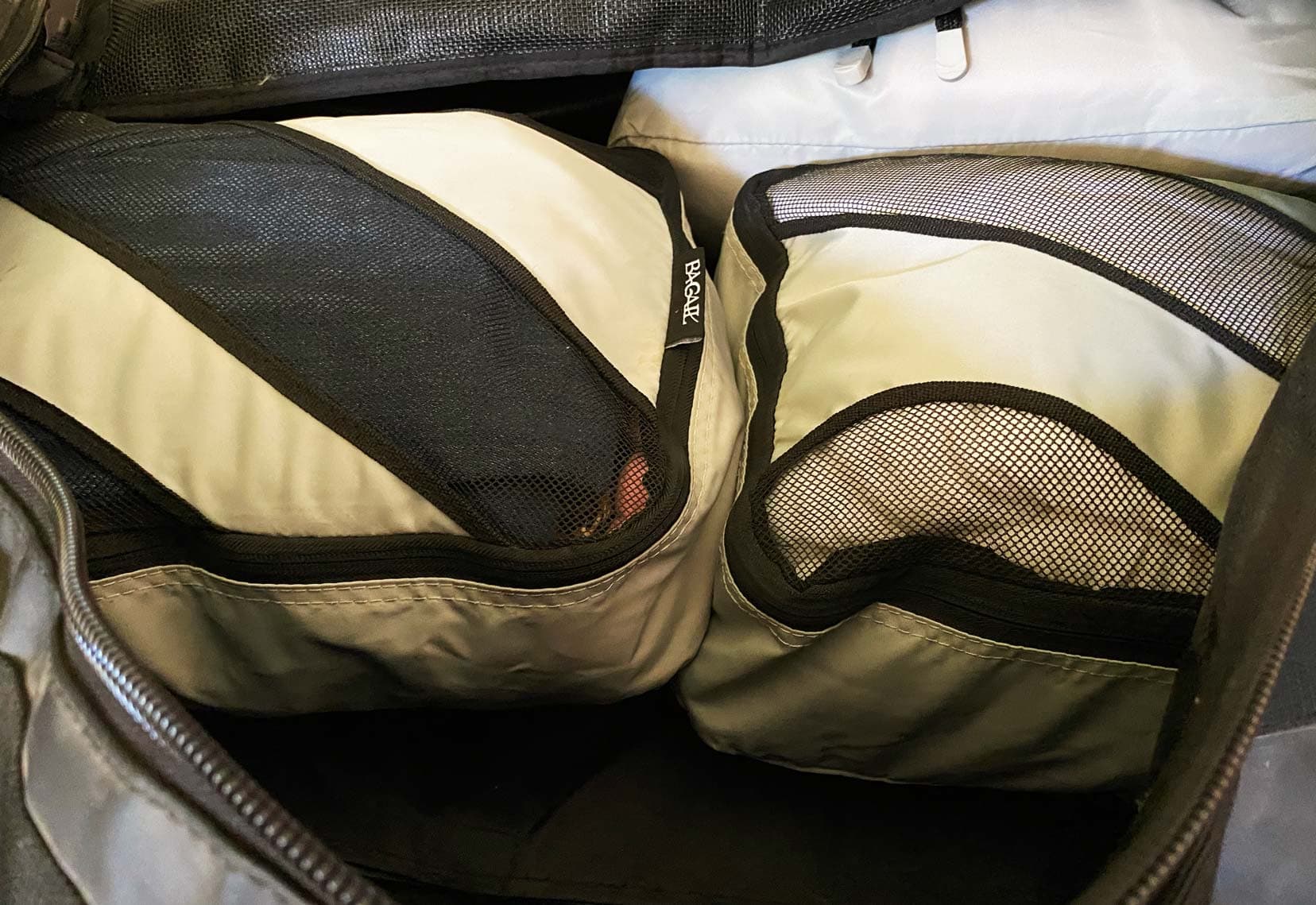
🎒Carry-on Luggage
Besides packing cubes, my expandable bag is another accessory I love. It’s perfect as my “handbag” for the plane has been our clever hack for managing extra carry-ons. It’s also handy when we’re camping or as an overnight bag. It also has a pocket that fits over a suitcase handle, which is handy.
In my carry-on, I like to have essential items like a change of clothes, necessary medications (for at least a week), Kindle, laptop and charger just in case my hold luggage gets lost or delayed.
Our carry-on backpacks are our camera bags, but if you don’t plan on lugging camera bags around with you, anti-theft Pacsafe backpacks are a great choice.
👜 Handbag
Another must-have on our travels has been my Pacsafe anti-theft handbag. It was particularly handy while we travelled through Europe and I felt very happy knowing I was wearing a slash-proof strap and could lock the zip.
A friend recommended the brand; I have had my bag for over seven years. Even though I use it so much, it’s still as good as new!
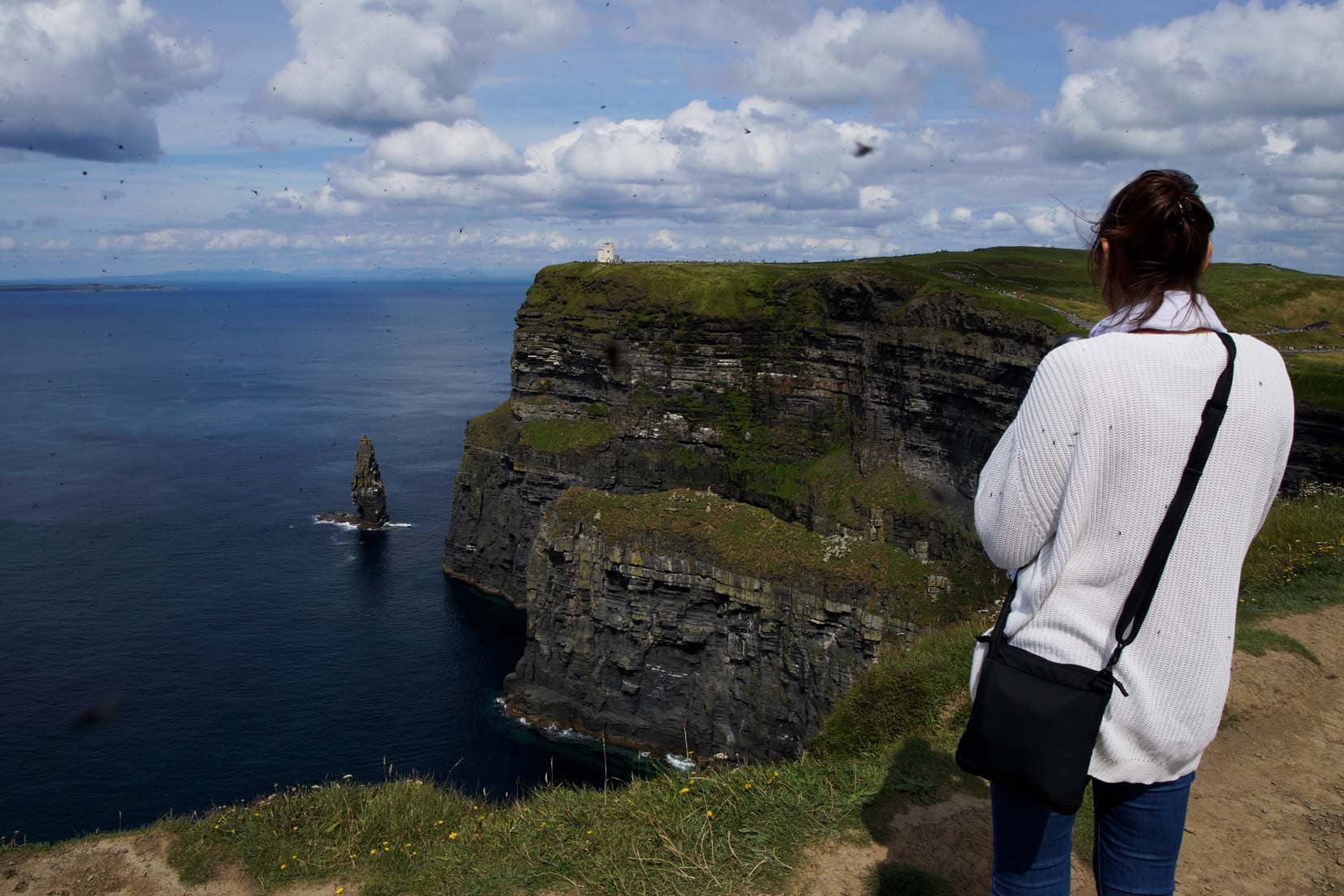
Essential Clothing List
Mix and Match
Opt for versatile, mix-and-match climate-appropriate clothing. This minimises the number of pieces you need. On our first trip, I left with far too many clothes. Now, most of my wardrobe is colour-coordinated and only contains clothes I actually wear regularly.
Layering
Layering pieces like a lightweight, warm puffer jacket and versatile clothing are indispensable to navigate various climates and cultural norms. My puffer jacket also packs down tightly for storage.
Footwear
The right shoes can make or break your travel experience. Comfy walking shoes for the city and reliable hiking boots for the trails are essential. And yes, breaking them in and testing them for slip resistance is a must—take it from someone who’s learned the hard way!
Tricky Wee Situations
My Freshette (a type of female urination device) has been a game-changer for camping in less conventional settings. I also use environmentally friendly Circe Care Pee Cloths.
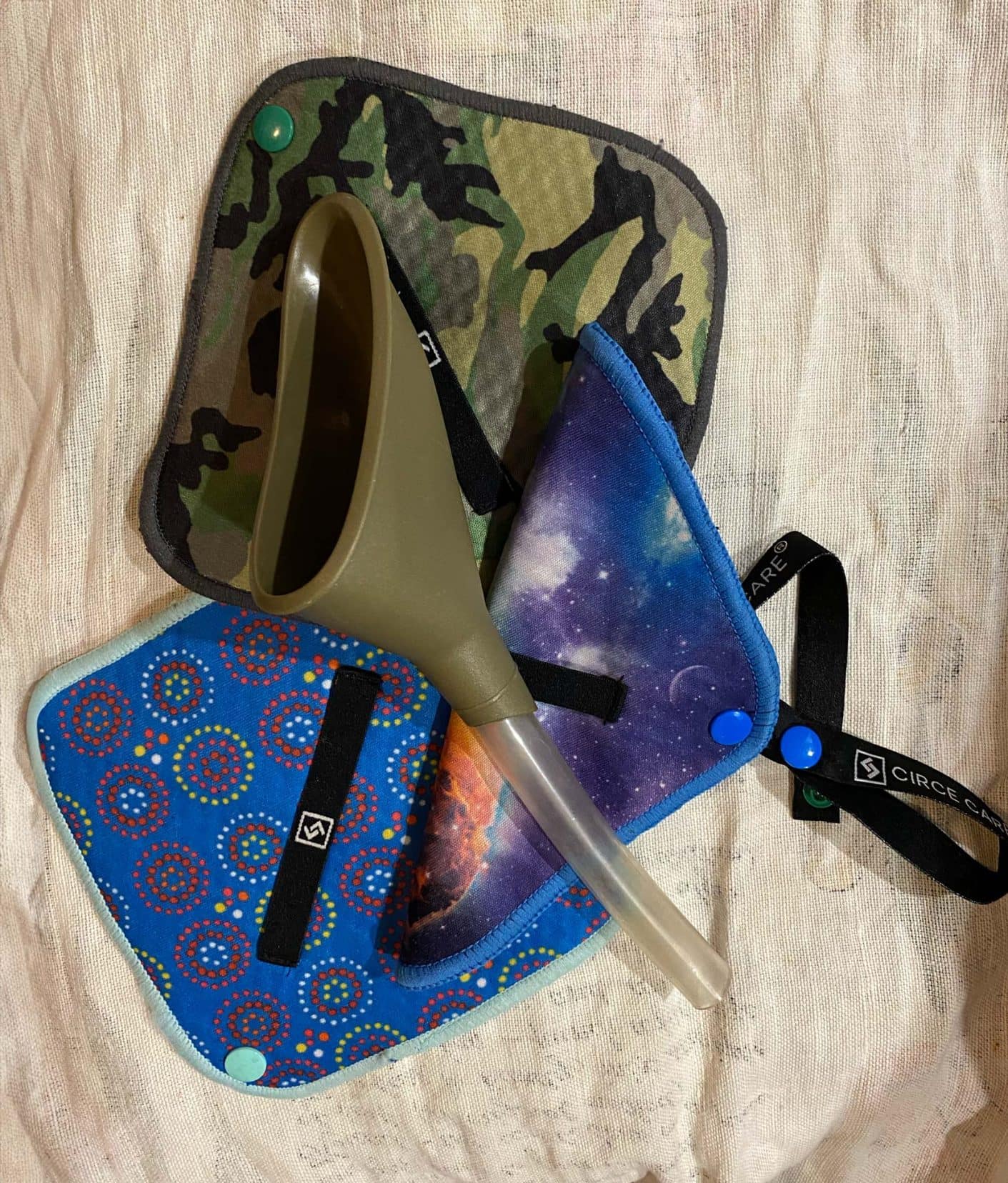
Tech for Travellers
Here’s a list of the main tech items that you’ll likely need for travel:
- Mobile phone
- Power bank
- Travel plug adaptor
- Kindle or iPad for reading books ( you don’t want to be carrying lots of books with you)
- Laptop computer
A robust power bank keeps our phones charged during long treks, and a compact travel cable organizer ensures we’re never untangling cords and always know where they are!
🔎 You can read more about our travel photography gear here.
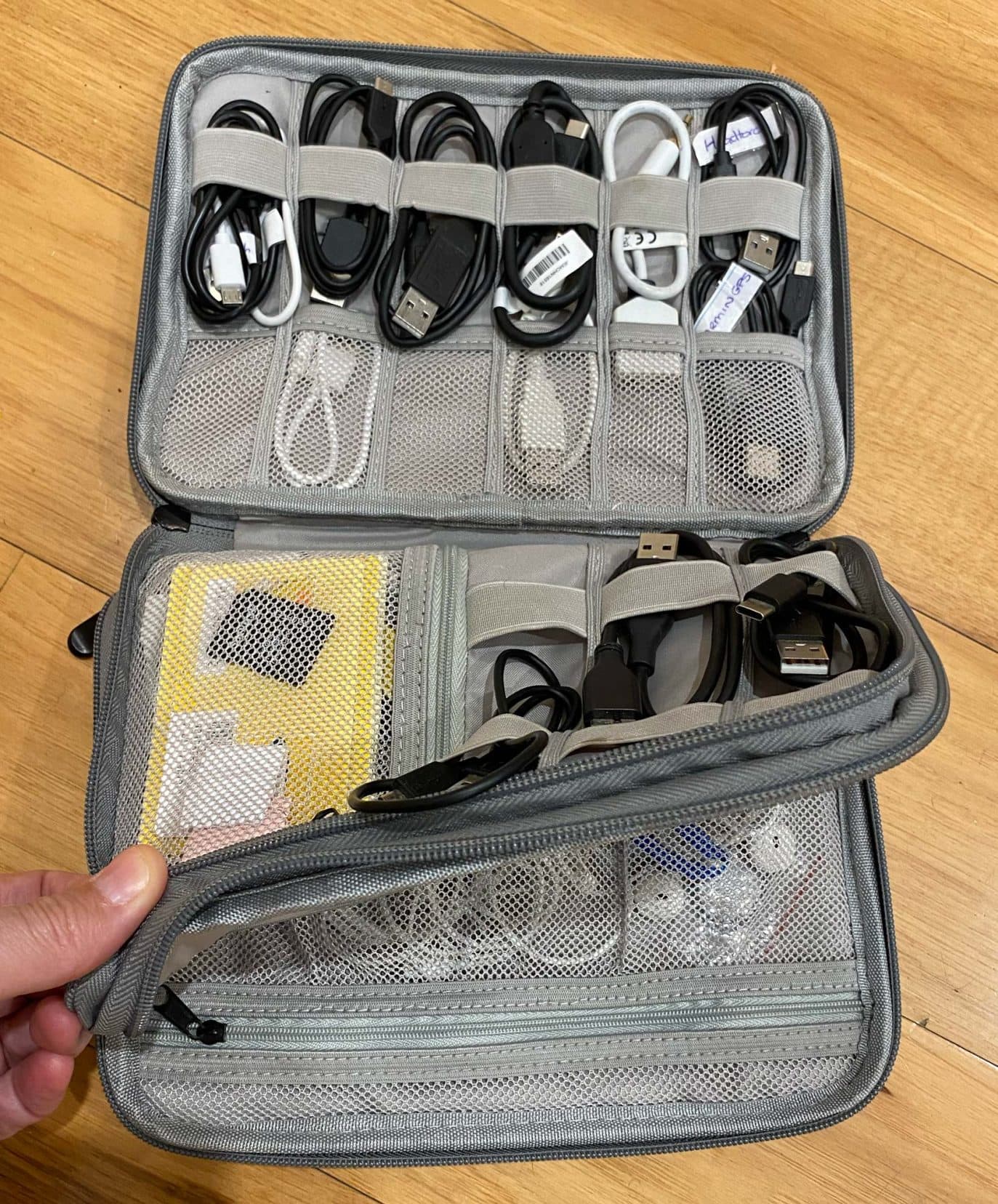
Connectivity Solutions
Local SIM cards are our lifeline abroad.
We haven’t tried eSIMS yet and have heard mixed things about them. One problem is that you can’t change it to another phone like you can a physical SIM, but they can save the hassle of buying a SIM and registering it while in another country.
7. Budgeting
Cost Estimation
Before embarking on long-term travel, it’s crucial to research and estimate the costs you’ll encounter thoroughly.
This includes accommodations, transportation, food, and activities. To get a realistic view of daily expenses, leverage resources like recent travel blogs, up-to-date guidebooks, and active travel forums that reflect current prices and tips from fellow travellers.
Financial Management
Effective financial management begins with a solid budgeting strategy. Utilize tools like budgeting apps or spreadsheets to keep a close track of your spending.
We’ve found the Wise Card incredibly useful for managing different currencies conveniently and avoiding high transaction fees. It allows us to hold multiple currencies, perfect for country hopping.
While we aren’t experts in travel rewards, we utilize a Visa card from Westpac to accumulate points that can be redeemed for pay with points or cashback options.
The most significant savings, however, come from lifestyle choices: cooking our own meals, opting for house-sitting opportunities, and prioritising free or low-cost activities.
These habits significantly cut down our daily expenses and allow us to extend our travels without compromising the quality of our experience.
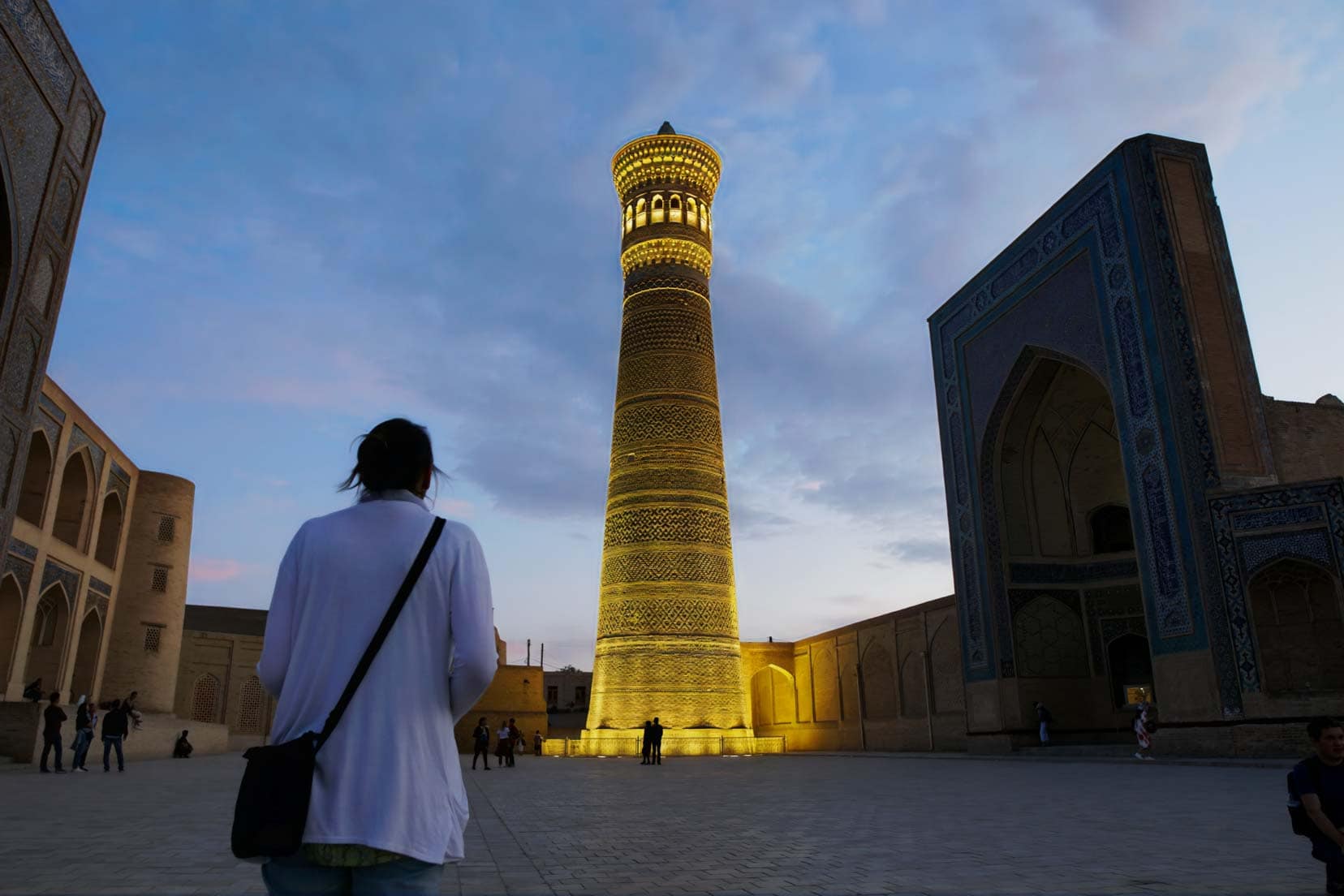
Long-Term Travel Preparation Checklist
👉 Grab a free PDF copy of our long-term planning checklist here
Possessions Management
- Categorize items to keep, sell, donate, or store.
- Use online platforms like Gumtree or Facebook Marketplace for selling.
- Arrange for donations or giveaways of items not sold.
- Set up sales via online platforms like Gumtree or Facebook Marketplace.
- Arrange secure storage for items you intend to keep.
Moving On
- Decide whether to sell, rent out, or vacate your home.
- Organize your departure, including property management if renting out.
- Handle employment transitions, such as resigning or negotiating leave.
Making Travel Arrangements
- Check and manage visa and legal requirements for all destinations.
- Ensure your passport is valid for the duration of your travel.
- Book flights.
- Book accommodation.
- Arrange for initial accommodation to account for jet lag recovery.
- Hire cars or motorhomes as needed.
Pre-Trip Admin Preparation
- Obtain necessary permits like an International Driver’s License.
- Verify visa requirements for all destinations and ensure compliance with entry rules.
- Inform banks and credit card companies of your travel itinerary to prevent blocked transactions.
- Set up mail/post forwarding.
- Automate essential bill payments.
- Arrange comprehensive travel insurance.
- Suspend local health insurance coverage if necessary.
- Ensure all important documents are up-to-date.
- Carry backups of important docs both physically and digitally.
- Set up a global currency card.
Health and Medical Preparation
- Check with your doctor regarding vaccinations needed for travel. Some may require multiple doses spaced months apart.
- Ask your doctor for a supply of antibiotics as a precautionary measure.
- Obtain a possible six-month prescription for any regular medications.
- Arrange a dental check-up.
- Arrange an optical appointment – consider buying a spare pair of glasses.
Choosing the Right Travel Gear
- Select versatile and appropriate clothing for different climates and situations.
- Invest in secure, space-efficient luggage and packing organizers like packing cubes.
- Prepare tech for travel; what will you take? Do you have all the necessary chargers, and is your phone ‘network unlocked’? Consider connectivity solutions like local SIM cards or eSIMs.
Budgeting
- Estimate and manage travel costs.
- Using budgeting tools/apps to track expenses.
- Possibly join Trusted Housesitters (especially if travelling in the UK, Australia, US, Canada, and France). You can browse the variety of housesits for free here.
How to Sell Everything and Travel … That’s a Wrap
Taking the leap to sell everything and travel is more than a major life decision—it’s the beginning of an adventure that opens up the world in ways you’ve never imagined.
This guide has walked you through all the nitty-gritty details, from clearing your clutter to setting up your itinerary. It’s all about making room—not just in your home but in your life for new experiences and adventures.
Selling everything isn’t just about getting rid of stuff. It’s about breaking free from the usual and embracing a life where every day is a new discovery.
It’s about turning those ‘one-day’ dreams into ‘day one’ realities. With each item sold, you’re not just clearing out space; you’re setting yourself up for freedom, flexibility, and the joy of the unknown.
As you enter this new chapter, remember that you’re not losing things but gaining the world. With the practical steps from our checklist, you’re ready to dive into a life of travel with excitement and confidence.
So, sell up, pack your essentials, and hit the road. The world is vast and beautiful, and it’s waiting for you to explore it.
Don’t forget to:
- 👉 Download a copy of this long-term travel checklist here and also
- 👉 Grab our free printable travel planner here (or read more about what’s included in the 23 pages of this planner here.
Safe travels, and here’s to finding joy in every mile and memory!
Planning Your Travels?
These are the travel resources we recommend and use when planning our trips.
- 🚘 Car Hire: We use DiscoverCars.com
- Motorhome/Campervan Rental: We highly recommend the Motorhome Republic
- 🪪 Order your International Driver’s Licence online here
- 🛏 Book Accommodation: We use Booking.com to find accommodation that suits our budget
- 🐶 Pet Sitting/Pet Sitters: Check Out TrustedHousesitters here (Use our Discount code: LIFEJOURNEY25 for 25% off. )
- Activities and Experiences: Get Your Guide and Viator
- Travel Insurance: Safetywing or World Nomads
- 🥾 Travel Gear and Accessories: Check out our top picks here — Lifejourney4two page on Amazon
For a more thorough list, visit our Travel Resources page here.

